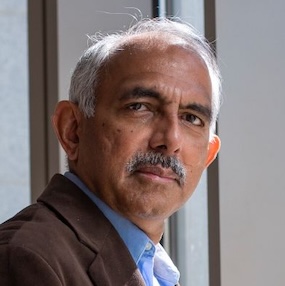K. M. Venkat Narayan, MD, MSc, MBA
Ruth and O.C. Hubert Professor of Global Health and Epidemiology | Rollins School of Public Health, Emory University
Professor of Medicine | Emory University School of Medicine
Biography
M. Venkat Narayan, MD, MSC, MBA, FRCPis Executive Director, Emory Global Diabetes Research Center. He is Ruth and O.C. Hubert Professor of Global Health and Epidemiology at Rollins School of Public Health and a professor of medicine and endocrinology at Emory University School of Medicine. A leading international diabetes expert, he is an elected member of the US National Academy of Medicine (NAM), foreign fellow of the Indian National Science Academy (INSA) and won the American Diabetes Association’s Kelly West award for outstanding achievement in epidemiology. He serves on the Committee of the Health and Medicine Division (HMD) of the National Academies of Sciences, Engineering, and Medicine (NASEM). Narayan is noted for substantial, multidisciplinary work in diabetes and noncommunicable diseases (NCD) epidemiology, pathophysiology, translation research and public health. He has been involved in several major national and international multi-center epidemiological studies, randomized controlled trials, public health surveillance, translation research and health policy studies. His seminal scientific contributions include advancing of diabetes prevention trials, conceptualizing and advancing diabetes translation research, systematic documentation of type 2 diabetes in youth and raising it as a public health problem, the world’s first assessment of lifetime risk of diabetes, models of projection of diabetes burdens, first paper on national incidence of childhood obesity, and lately highlighting insulin-deficient phenotypes of type 2 diabetes. He is currently also exploring pancreatic beta cell biology and intriguing differences in the pathophysiology of type 2 diabetes in Asian, African, Native American and developing countries’ populations globally. With more than 570 publications, including several high-impact studies, and over 210,000 citations, his work exemplifies his global leadership and influence in diabetes and noncommunicable science and public health.
Publications
- View publications on PubMed
- View publications on Google Scholar
